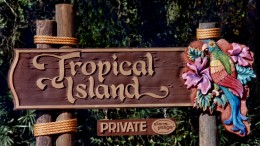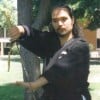How much practical value did you derive from your education?
How much practical value did you derive from your education?
does college make a dfference anywhere other than applying for a job? How would you compare the value of your education to what you have learned since?It never teaches how to brush one's teeth...properly. Now guess.
- msorenssonposted 13 years ago
0
Before I answer, I wish to put a disclaimer that it is my opinion alone...my undergraduate education was invaluable.
I had the best teachers. They did not get paid much, but they loved what they did. I went to school with kids who ate Nietzsche for breakfast and Bertrand Russell for dinner, at 16.
I mingled with the poorest of the poor as well as the most privileged kids, our only commonality having passed a grueling test to become a government scholar.
In every subject, year after year, we were reminded that if we were not willing to do what it takes, the honorable thing to do was to "cede" our seats to someone else who would, and there was a long wait list.
I probably would have received a similar academic education elsewhere. There are many other good schools. However the exposure to the whole slice of society was, is, priceless.
I do not know how different I would be today if I had gone to another school.I am not sure which side your answer falls on. I suspect that you don't adduce philosophers as evidence of education that has practical application in the world of work. Nor am I sure how entrance requirements or occupying seats pertain.
Academics, you don't have to learn from school. It can be taught at home. The practical side of life we learn on our own,by interacting with others. No need to go to school for that. You asked for the value of my education. I answered it is priceless
Generally, academic education only supplements your ability to excel in a professional arena. Of late there has been less value of what you have learnt in college compared to it applicability in your professional and personal lives. What we learn by experience is of more value than what we were taught at school, college etc.
At least in my case.I think that you touch on what prompted me to ask the question. It seems to me that I learned far more from work experience.
That said, I am grateful that my humanities education introduced me to an appreciation of literature.
I think the most valuable and practical thing you can learn at college is... how to learn (in an efficient way).
This was certainly true in my case, although I never understood this until after I had completed an undergraduate degree.
The amount of new required knowledge in a semester at high school, seems to be equivalent to a week or two of lectures in an undergraduate degree.
We are living in the information revolution. The content from many college degrees with direct practical applications (e.g. medicine / health professions, information technology etc.) will contain many elements that are obsolete within the few years of graduation.
There are people who will read this post today that will retire years from now after working in professions that don't yet exist. How many web-designers were there in the 80's or gene therapists in the 90's... or phone app developers in the 00's?
College degrees don't necessarily make you an expert in the field with practical skills. Instead they give a base level of skill in the field and afford you the opportunity to become an expert in the practical applications of your chosen field in the future (usually with hard work and experience).
This is of course assuming you want to be an expert in a field that requires a college education. There are many excellent occupations that do not require a college education (builders, pilots, chefs, firemen, home makers etc.).That's what I was trying to say. I don't have a college degree, but I am considered an expert in my field because of the time and experience I've had. There's alot of emphasis put on higher education, but it's not always necessary.
I had two years of college in which I learned so much. But, then I made the mistake of getting married (and subsequently divorced) and dropped out of college.
However, I made a very successful career in ophthalmology for 16 years. I wasn't paid as much as someone who had a 4 year degree in another field, but for my position, I was one of the highest paid technicians. So, I'm not really sure college matters in all fields. I think it depends on whether or not the field is open to on-the-job training as mine was. Certification in my field was a must, but easy to get if you knew your job.
As for the two year educational value compared to everything since? I can't say they weren't important because I did learn quite a bit that helped me learn my job, but I also can't say they were the cornerstone of my education. Although, I probably wouldn't be anywhere without the critical thinking skills I acquired in college, so I guess I'm on the fence on this one mostly because I don't think I was in college long enough to really see a huge impact on my life.Any education is a plus. We learn much through our educational journey which is always constant. Some believe that education is only through formal school such as public school or college when in fact we learn every day of our lives. There are life lessons we learn through our experiences and there are things we learn from others around us. It can be from the environment we are in at work or those with which we work including our supervisors.
Working in our jobs provides numerous opportunities to learn. Today the work environment is constantly changing with the change in technology. The training we receive in our jobs is in relation to the changes companies make as a result of technology. We also learn from the experiences we have in how to handle sometimes difficult situations. This makes us better individuals and better workers for organizations for which we work.I was lucky enough to attend very good schools and I still use what I learned from grade school through graduate school. Most of it applies to work situations - how to use computer programs, writing skills, vocabulary, etc. My writing here on hubpages has been helped immensely by what I learned in school. T
The life experiences throughout my education were life shaping as well.
I also was lucky enough to have teachers and professors that taught me how to learn. I learn quick and know how to apply it. I would not be such a good learner now if I did not have the educational experience that I did.
I do not think that everyone is meant to go to college and earn a four year degree. Those who are academically minded, or want a career that will need the degree absolutely should. Others should consider a two year degree or technical school. There really are benefits that extend beyond the classroom.
The things that I have learned since college have been equally important in my life. But I know that my education enriched my life very noticeably (through education and experiences).College was interesting but I think the Tutors got more out of it, secure job and gold plated pension. When I entered the work environment one months work had the learning value of two years at college. Life is one great lesson, college did teach me to keep learning throughout my life.
In secondary school, being a boarding school, apart from the conventional subjects, I learnt life skills that I have not needed to update.

Are you kidding? I have been self employed for over half of my career. I studied Journalism before I went to art school. Of course, you don't learn all you need in school, but much of what you learn in a day would take years to learn on your own (if at all).
Why do we focus on jobs? There is more to life than work and TV. Knowledge serves one well in the enjoyment of every aspect of life. If you have never read the Bible, "Moby Dick" is just another fish story.
Here is an example of how I would I compare the value of my education to what I have learned since. They did not teach woodcarving at art school. I had to learn those techniques later. The techniques of woodcarving are almost useless if you don't know the principals of design and have no experience with other forms of sculpture. In order to render a professional product I need all of what I have learned in school and afterward. The photo is an example of what I mean.Practical experience always wins out over conventional learning. I tell my daughter that common sense will take you farther than any text book. That said, I received little value from my first degrees. There were several classes that I only attended on test days. The education I received didn't take me far in life it was the people I knew. I have learned far more in the 23 years since I left college than I learned while sleeping through class.
i learned so much in the college ,When i am doing my diploma
I studied engineering, so I my education does actually help me. However, the class that has helped me most is philosophy of logic. After this, language courses in Japanese and Arabic actually served me well in Japan and in the Middle East. Speech class helped, but not as much as the Marine leadership course I took.
Another thing that paid off for me was the Marine Corps Institute study by mail course I took: Counter Terrorism. That helped me understand a lot of what was happening in the ME while I was there more than a decade later.You start to Die when you stop learning.
Education starts at birth and continues through your entire life.... But I presume you are talking about the Basic Education Indoctrination of our K-12 system + College etc...
Basics were necessary.. No-one functions well without communication skills or mathematics... Exercise was also important.. to keep the mind awake for the mental training of the other classes.
History was a bore back then... and we really did not like the teacher... which made it worse.
Shop Classes (Metal, Wood and Plastic) Were my bread and butter... they made the other classes tolerable...
Typing was a class I took just because I needed to fill an elective slot...
Now... Looking Back on it all...
The classes that seemed to be the least important have become the most important in my life...
The Shop classes and others each made their own niche in my life.. For example the Compulsion I have at times for Carpentry and building things...
The Use of a typewriter became a foundation for my love for writing and with the coming of the computers and internet have become a daily use skill.
I Love the Study of Religion... and History goes hand in hand with this study.
Practical Value of Education... Needed...
But we need to keep Public Education within the realm of Education and be careful that it is not used as a Podium for propaganda issues.
I saw this happening in my time... and I read it in the news all of the time now where Teachers or Administrators are taking away the rights of the kids (Freedom to think for themselves) and instead of teaching them the facts they need... are indoctrinating them with ACLU ideology and Politically Correctness.I say if there is not a wholeness to education, if it is not teaching the whole human being, then it is pretty worthless. If I must be one way at home, another way at school, then I'm divided and in conflict. Education ought to make the human being whole. Our educational system does not do that; it's an assembly line, producing workers for the job market. Your life gets narrowed down and limited in that way. The emphasis is on how to make money, but not to learn what you want to do or understand yourself and the world.
I haven't been to college, but I would love to go.
I've gotten along alright without a degree - during the years I worked for other people I had no problem getting the same jobs that new graduates were aiming for. As I've gotten older, the lack of a degree is starting to affect more and more in terms of experience and credibility. It's no longer enough to be smart, I need the clout that a degree brings if I want to be competitive or get a job somewhere other than the bottom rung.
I have plenty of work experience, which is helpful in some ways, but for the phase I am in in my life, it isn't sufficient. It's not only about the degree: it's about learning new skills, having the opportunity to expand the basic knowledge I have of the world and the different perspectives in it. The internet is great, but it isn't enough of a replacement for me.
Related Discussions
- 28
Sure, you've got your college degree, but was it worth it?
by professorjeff 12 years ago
There's a lot of talk about education. Get a college degree and you've saved the day. It's the end-all and cure-all. A formal education is critical to your sustained achievement. But is the bachelor's so super, man? Not a lot of surveys going out to grads asking critical questions about degree...
- 4
What is the difference between an undergraduate degree and a graduate degree?
by Myriam St-Hilaire 13 years ago
What is the difference between an undergraduate degree and a graduate degree?
- 7
Is higher education something worth investing into today for our youth?
by Mike Pugh 12 years ago
Is higher education something worth investing into today for our youth?Do you think getting a college degree will help your children to get a career paying job today, even with a horrible economy and no jobs in most career areas.
- 7
Did you attend college? If so, for what? If not, how come?
by essiheart 14 years ago
Did you attend college? If so, for what? If not, how come?
- 15
Informal education and Incidental learning: how to use these concepts
by Dr Freddie Haddox 13 years ago
Our society places a greater emphasis on formal education than on equally important concepts of informal education and incidental learning. My success, as an educator, in business, medicine, and practical theology, has in been facilitated by my attempts to apply informal and incidental learning...
- 125
College Education vs. Individual Education
by marinealways24 15 years ago
I have been called illiterate and corrected on punctuation many times. I have been told to go to college. I have been given many book suggestions by the college educated who believe I am ignorant because they have a better title than me.Tell me why your degree is smarter than me. I don't like to...























